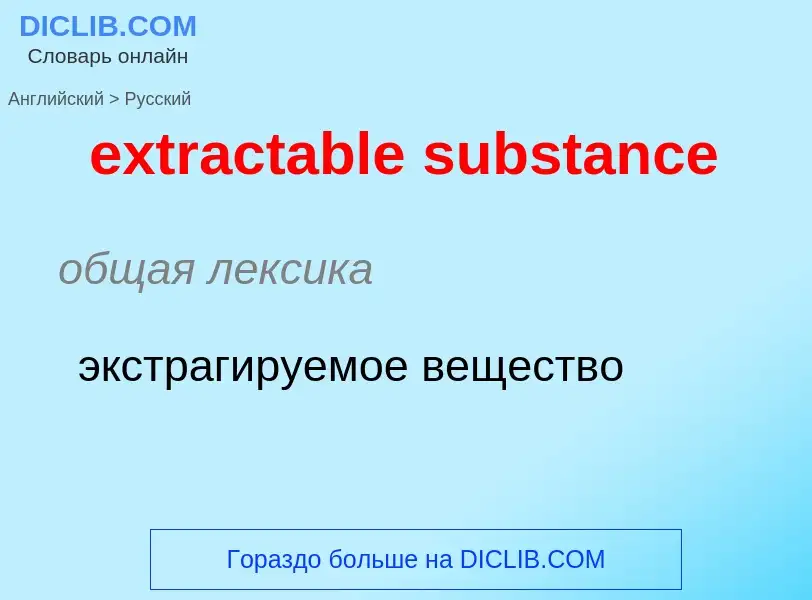Μετάφραση και ανάλυση λέξεων από την τεχνητή νοημοσύνη ChatGPT
Σε αυτήν τη σελίδα μπορείτε να λάβετε μια λεπτομερή ανάλυση μιας λέξης ή μιας φράσης, η οποία δημιουργήθηκε χρησιμοποιώντας το ChatGPT, την καλύτερη τεχνολογία τεχνητής νοημοσύνης μέχρι σήμερα:
- πώς χρησιμοποιείται η λέξη
- συχνότητα χρήσης
- χρησιμοποιείται πιο συχνά στον προφορικό ή γραπτό λόγο
- επιλογές μετάφρασης λέξεων
- παραδείγματα χρήσης (πολλές φράσεις με μετάφραση)
- ετυμολογία
extractable substance - translation to ρωσικά
общая лексика
экстрагируемое вещество
[səbstænʃi'æliti]
существительное
общая лексика
прочность и пр.
реальность
Смотрите также
Ορισμός
Βικιπαίδεια
Substance theory, or substance–attribute theory, is an ontological theory positing that objects are constituted each by a substance and properties borne by the substance but distinct from it. In this role, a substance can be referred to as a substratum or a thing-in-itself. Substances are particulars that are ontologically independent: they are able to exist all by themselves. Another defining feature often attributed to substances is their ability to undergo changes. Changes involve something existing before, during and after the change. They can be described in terms of a persisting substance gaining or losing properties. Attributes or properties, on the other hand, are entities that can be exemplified by substances. Properties characterize their bearers, they express what their bearer is like.
Substance is a key concept in ontology, the latter in turn part of metaphysics, which may be classified into monist, dualist, or pluralist varieties according to how many substances or individuals are said to populate, furnish, or exist in the world. According to monistic views, there is only one substance. Stoicism and Spinoza, for example, hold monistic views, that pneuma or God, respectively, is the one substance in the world. These modes of thinking are sometimes associated with the idea of immanence. Dualism sees the world as being composed of two fundamental substances (for example, the Cartesian substance dualism of mind and matter). Pluralist philosophies include Plato's Theory of Forms and Aristotle's hylomorphic categories.

